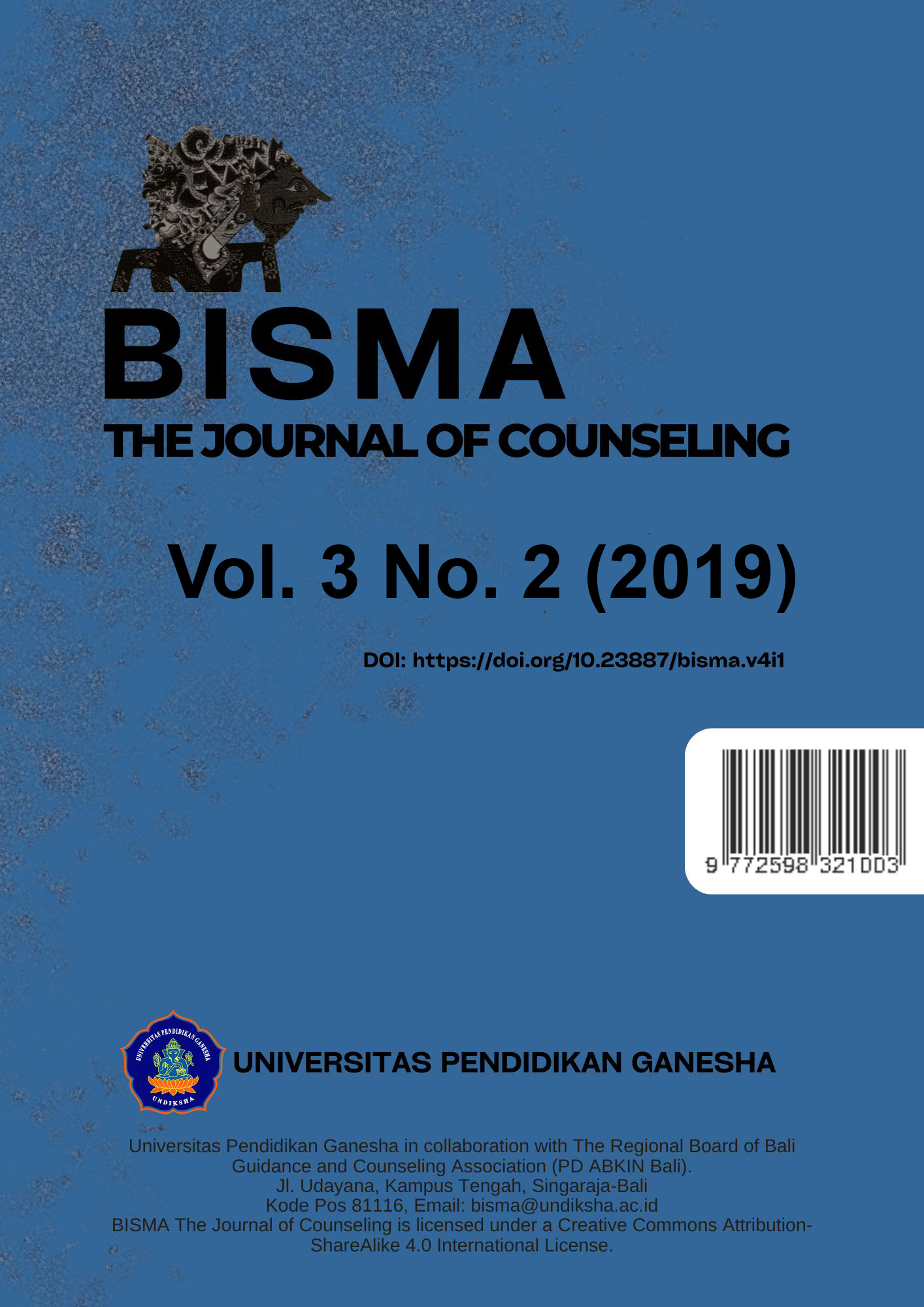Enhancing Career Planning with Thinking Share Technique Classic Guidance Services
DOI:
https://doi.org/10.23887/bisma.v3i2.22641Keywords:
Counseling Classical Service, Think Pair Share, Career PlanningAbstract
Career planning is a process for students to develop and implement an activity in order to achieve the desired career. These activities generally contains a variety of academic activities in accordance with a career. But, there are many students are confused how to plan his career. Based on the planning from the objective of this study is to determine the effectiveness of the classical counseling services using think pair share technique concerning on the career planning class in X MA Futuhiyyah 2 Mranggen. This research used quantitative methods using true experimental design Pretest-Posttest Control Group Design. In this study were taken from two sample classes using cluster random sampling technique. The results of the data pretest-posttest processing test results obtained hepotesis ie = 8.507 ≥ = 2,000 then from these results we can conclude that there is the enhancement of the classical service technique to think pair share on career planning the students’ in X class MA Futuhiyyah 2 Mranggen Demak
References
Afoan Y. Maria. dkk. 2016. Evektivitas penerapan model pembelajaran think pair share (TPS) terhadap hasil belajar dan aktivitas siswa pada materi sistem pernapasan manusia. 1(10) 2054-2058. http://media.neliti.com/media/publication/211410-none.pdf&ved
Departemen Pendidikan Nasional. 2007. Rambu-Rambu Penyelenggaraan Bimbingan dan Konseling dalam Jalur Pendidikan. Jakarta: Departemen Pendidikan Nasional.
Elhefni. 2011. Model pembelajaran kooperatif tipe think pair share dan hasil belajar di sekolah . Ta'dib. 16 (2). http://jurnal.radenfatah.ac.id/index.php/tadib/articel/download
Hamdayama, Jumanta. 2015. Model Pembelajaran dan Metode Pembelajaran Kreatif Dan Berkarakter. Bogor: Ghalia Indonesia.
Jakni. 2016. Metodologi Penelitian Experimen Bidang Pendidikan . Bandung: Alfabeta.
Hartono. 2016. Bimbingan Karir. Jakarta : Prenadamedia Group.
Kementrian pendidikan dan Kebudayaan. 2016. Panduan Operasional Penyelenggaraan Bimbingan dan Konseling Sekolah. Kementrian Pendidikan dan Kebudayaan .
Liza, L. Oktavia. 2016. Pengaruh Layanan Informasi Tentang Studi Lanjut Terhadap Perencanaan Karir Siswa Kelas XI IPA SMA Negeri 1 Pekanbaru Tahun Ajaran 2013/2014. Jurnal Bimbingan Konseling Indonesia, 1(1). http://www.google.com/url?sa=t&sourch=web&rct=https://media.meliti.com/media/publication/184241
Rosita, Ita. Leornado. 2013. Meningkatkan Kerjasama Siswa Melalui Pembelajaran Kooperaatif Tipe Think Pair Share. Jakarta. Jurnal Formatif 3(1) 1-10.http://www.researchgate.net/publication/323571803
Shoimin, A. (2014). 68 Model pembelajaran inovatif dalam kurikulum 2013. Yogyakarta: AR-Ruzz Media.
Trianto. 2011. Model-model pembelajaran Inovatif berorientasi Konstruktivistik . Jakarta : Prestasi Pustaka Publisher.
Yusuf, Muri. 2005. Kiat Sukses dalam Karir. Bogor: Ghalia Indonesia.
Yusuf, Syamsu. 2009. Program bimbingan dan konseling di sekolah . Bandung : Rizqi .
Walgito, Bimo. 2010. Bimbingan konseling studi karir . Yogyakarta: Andi Yogyakarta









